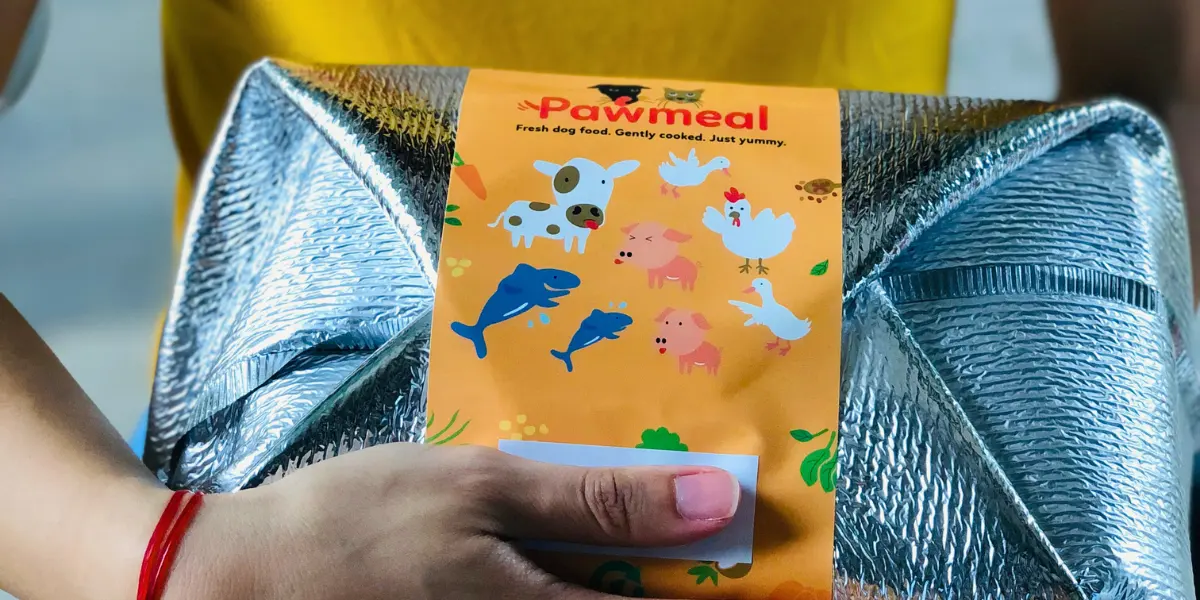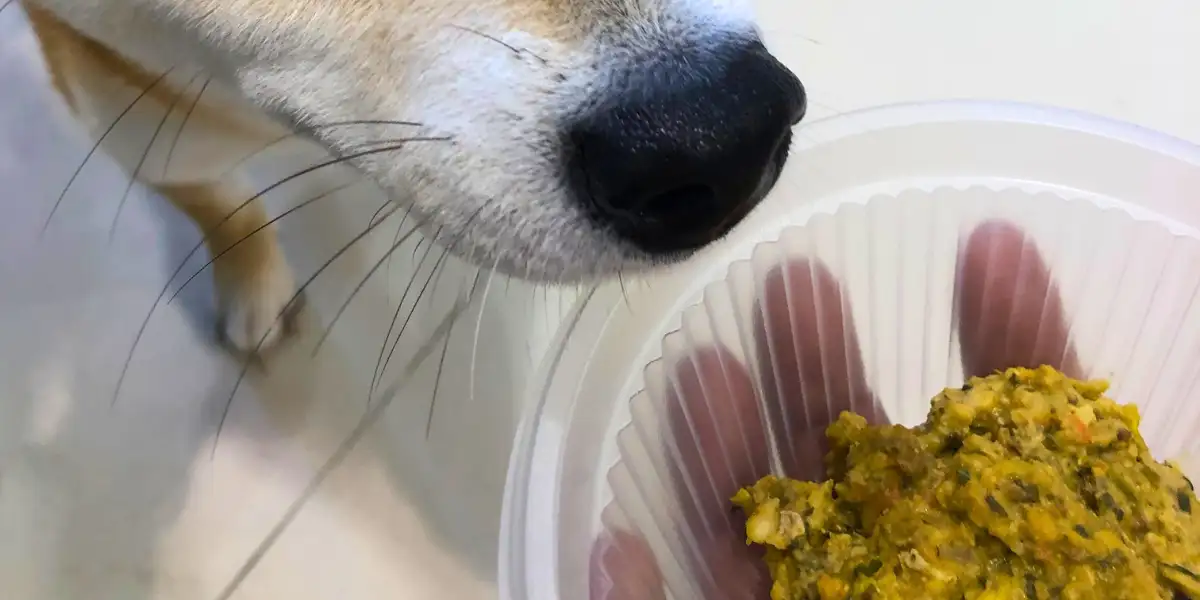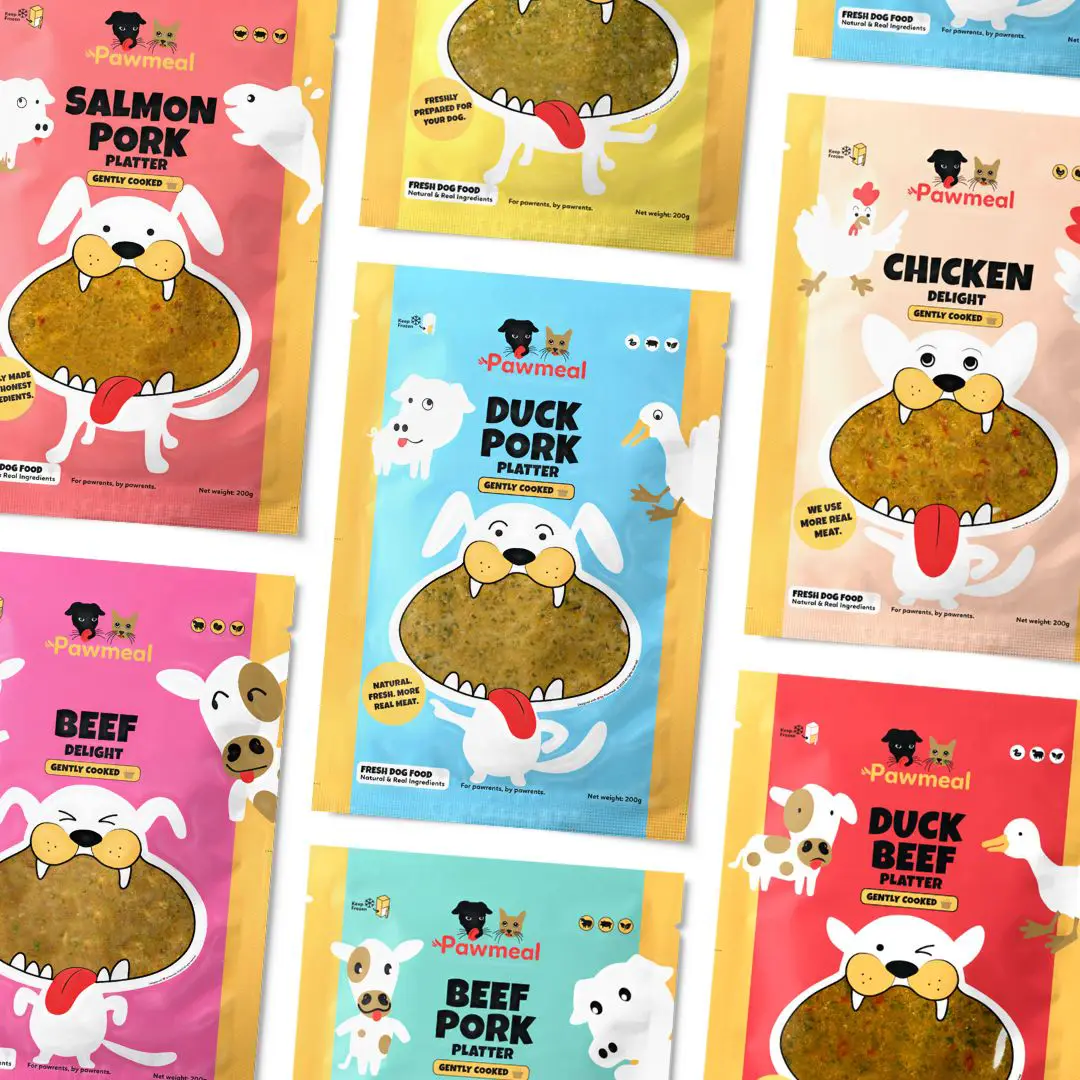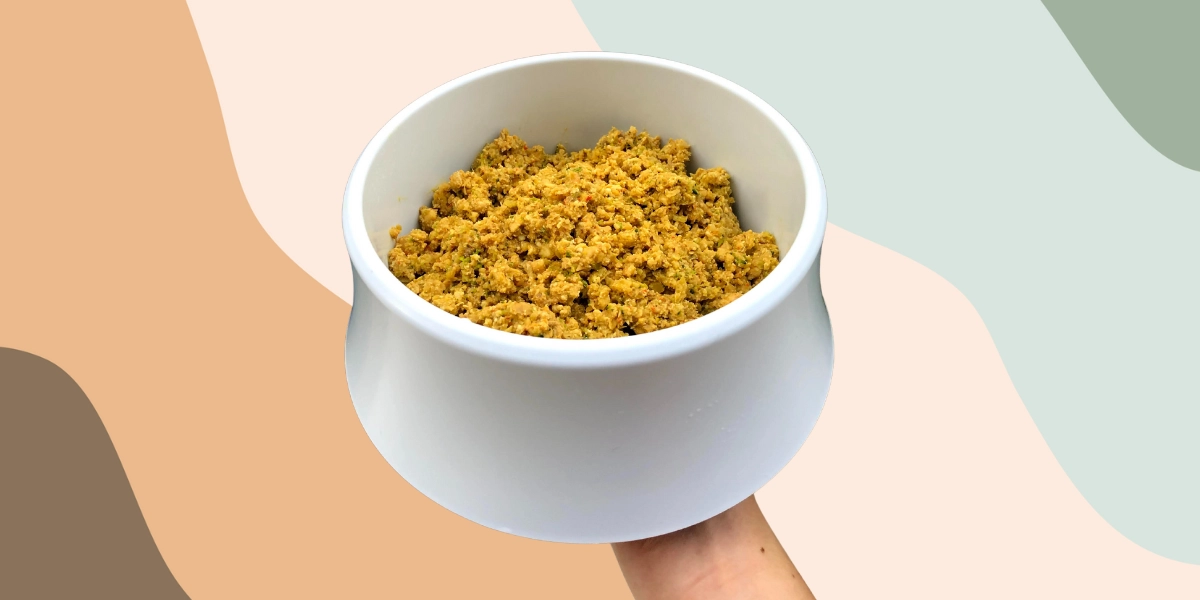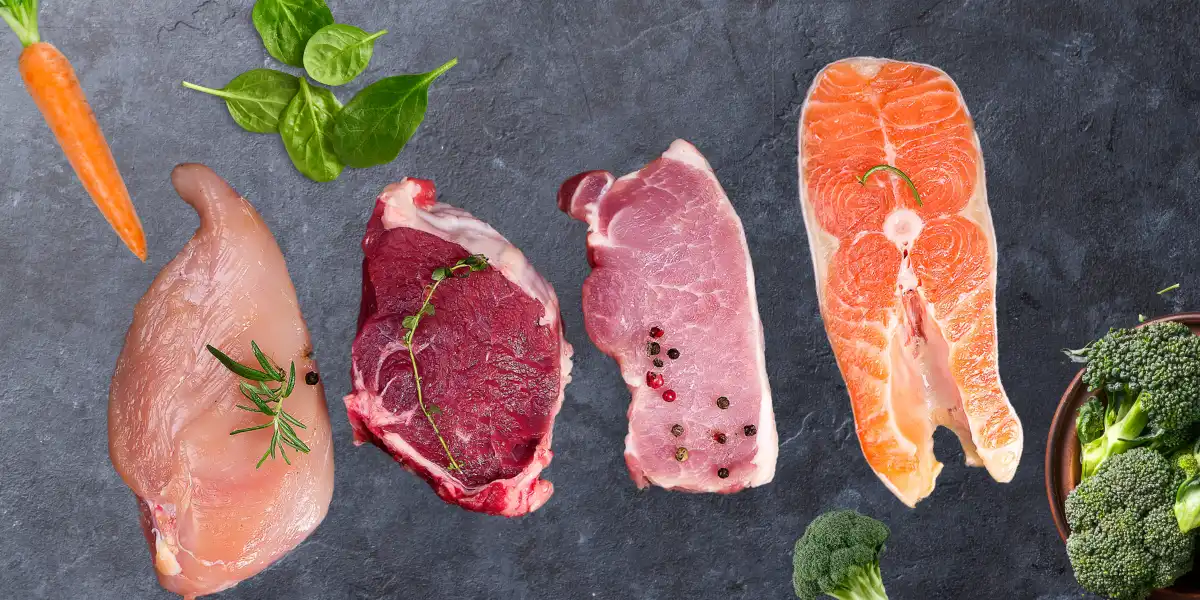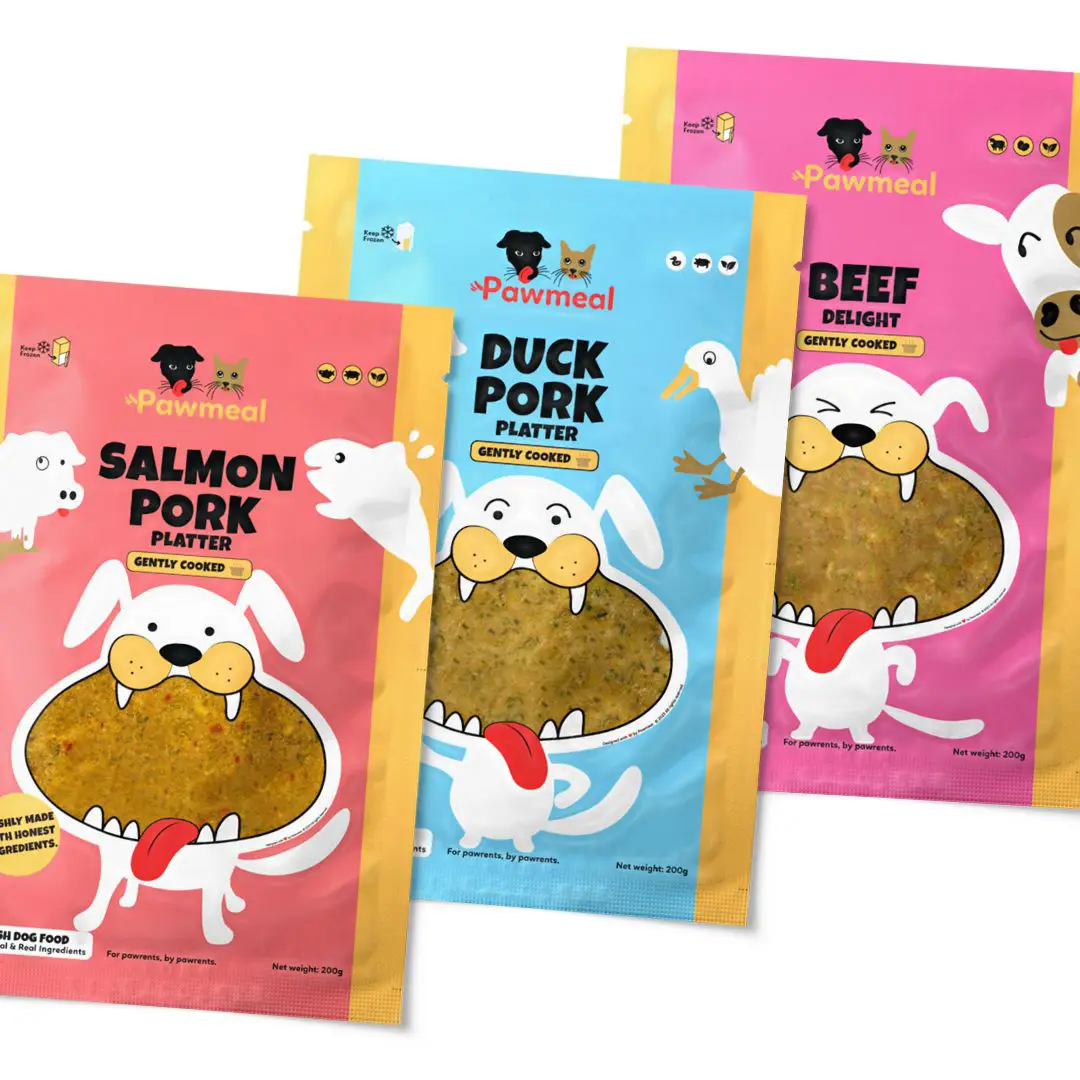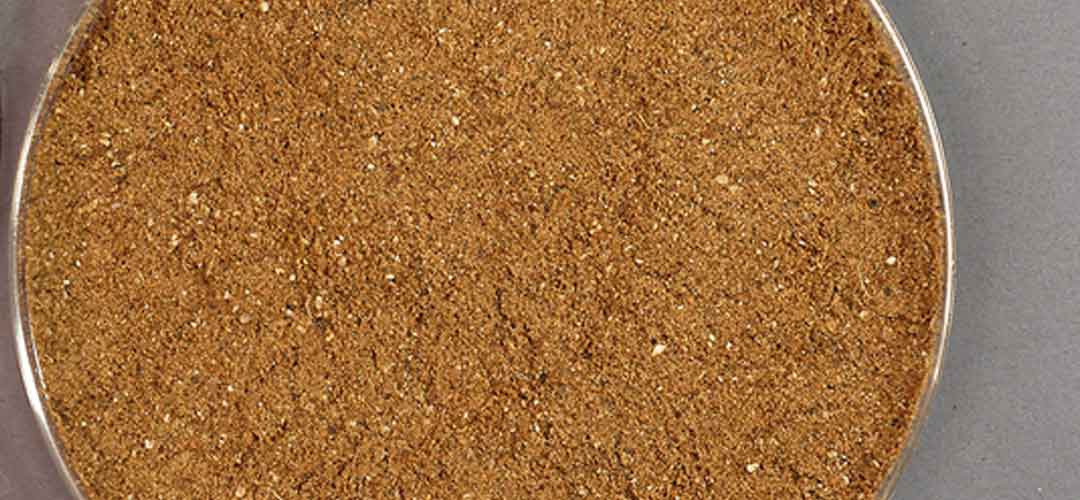Summary – It is OK to feed dog food that uses good quality meat concentrate that comes from edible meaty parts of an animal, and a NO if the ingredient sources are not exactly transparent. We feel that meat meals that consist of natural, real meat are good for your dog. Do note that these meat powders usually require topping up of artificial nutrients as the high heat process will have eliminated most of the natural nutrients. Meat meals that use real proteins are so rare, as almost every dog food maker save on ingredient costs. (To give you an idea: 1kg of raw animal protein will end up only 200g or less worth of meat meal!)
Not all meat meals are bad. But some are so mysterious that we have no idea that are the ingredients that make up the meat meal. In this article, you will learn how to recognise lower quality ingredients in your dog’s food, especially when it contains “Meat Meal”. 😅
What are meat meals?
They look like protein powder for dogs and often promote themselves as rich in proteins. Sounds good, eh? Meat meals are highly concentrated meat protein powder that is an end product after cooking the meat with water over long periods. This process is also known as ‘rendering’ the meat. During the cooking process, the heat will cook away the water and continues to bake the remaining meat. Eventually, the meat will break down and turn into powder. This becomes meat meals! (Or what some people call ‘rendered meat’).
So is this meat powder good or bad?
Of course there are reputable, better quality meat meals in the market. But there are also inferior ones. We want to highlight 2 things for your consideration before you decide to feed meat meals to your pup.
Consideration 1: Meat meals may undergo high heat cooking over long periods
To make meat meals, pet food manufacturers purposely overcook the meat to cook the water away. It’s like making stewed meat. This leaves the residue behind and eventually dries up. You will get a highly concentrated meat protein powder that contains next to zero moisture.
What you need to find out is how the factory renders the meat, and at what temperatures. Anything above 80-100℃ is high heat. Cooking in this high heat will most likely kill away much of the natural nutrients and vitamins in the meat. Some meat meals manufacturers then add back synthetic or artificial nutrients and vitamins to the meat meals to re-balance them. And they often keep quiet about it. Does not sound too healthy, right?
Consideration 2: What are the raw materials for this meat meal?
When meat breaks down and becomes powder, no one can tell what are the original raw materials. Some food manufacturers choose not to clarify too much about the origins of the meat meal. This should be a red flag.
In general, there are a few tips to avoid choosing lousy products:
1. Names that include the words “by-products”. “By-products” means all other parts of the animal except for the meat. (Bones, lungs, heart, blood, liver, fat tissues, tongues, etc)
2. Names that are vague and generic. We are referring to those names that do not even bother to specify the exact animal source. Examples include “meat meals” (from which animal?), “animal meals”, “quality bone meals” (which animal’s bone, and which bone?) etc.
3. Names that overuse flashy words like “high quality”, “best dog food”, and “wholesome”. We feel that if a food uses these words excessively as their main message, it is just marketing at its best. A good, real food does not need flashy words so much to convince others.
So next time when you shop for dog food, remember to look at the ingredient labels carefully!
What’s in your dog’s food?
Meat meals are most commonly found in dry pet food, dehydrated food and some freeze dried food as well. Try grabbing your pet food label and see if the first 3 to 5 ingredients contain any “meals” in their names.
Meat powder sometimes can be good too
There is a long deliberate cooking process to cook away the water from the animal meats (or parts). All that is left is just the “essence”, ie the meat powder, minus the moisture.
In comparison, a normal chicken or lamb meat contains more water than proteins. So meal powder often contain more proteins than the usual cooked meats, if you compare gram to gram. 50g of meal powder may contain the same amount of proteins as a 200g home cooked minced meat. You do not need to feed 200g of meat powders (that will be an overkill). You just need to add water to 50g of powder so it becomes 200g worth of food.
So besides having comparable amounts of proteins, meat meals are lighter, more portable and has a longer shelf life than home cooked meat.
Conclusion
We feel that meat powders that consist of pure, real meat can be good (provided feeding in moderation) for your dog because they are high in proteins, minus the moisture. But good quality meat meals are so rare, as almost every dog food maker save on ingredient costs. So our answer is OK to the quality ones, and a NO if the ingredient sources are not exactly transparent and vague.
We also have to note that as making meat meals require a prolonged period of extreme high heat to cook away the moisture, the result may be a loss of natural, pure nutrients – which means pet food manufacturers may end up topping up with synthetic nutrients to balance the powders. Too much synthetic is always not so good, right?


